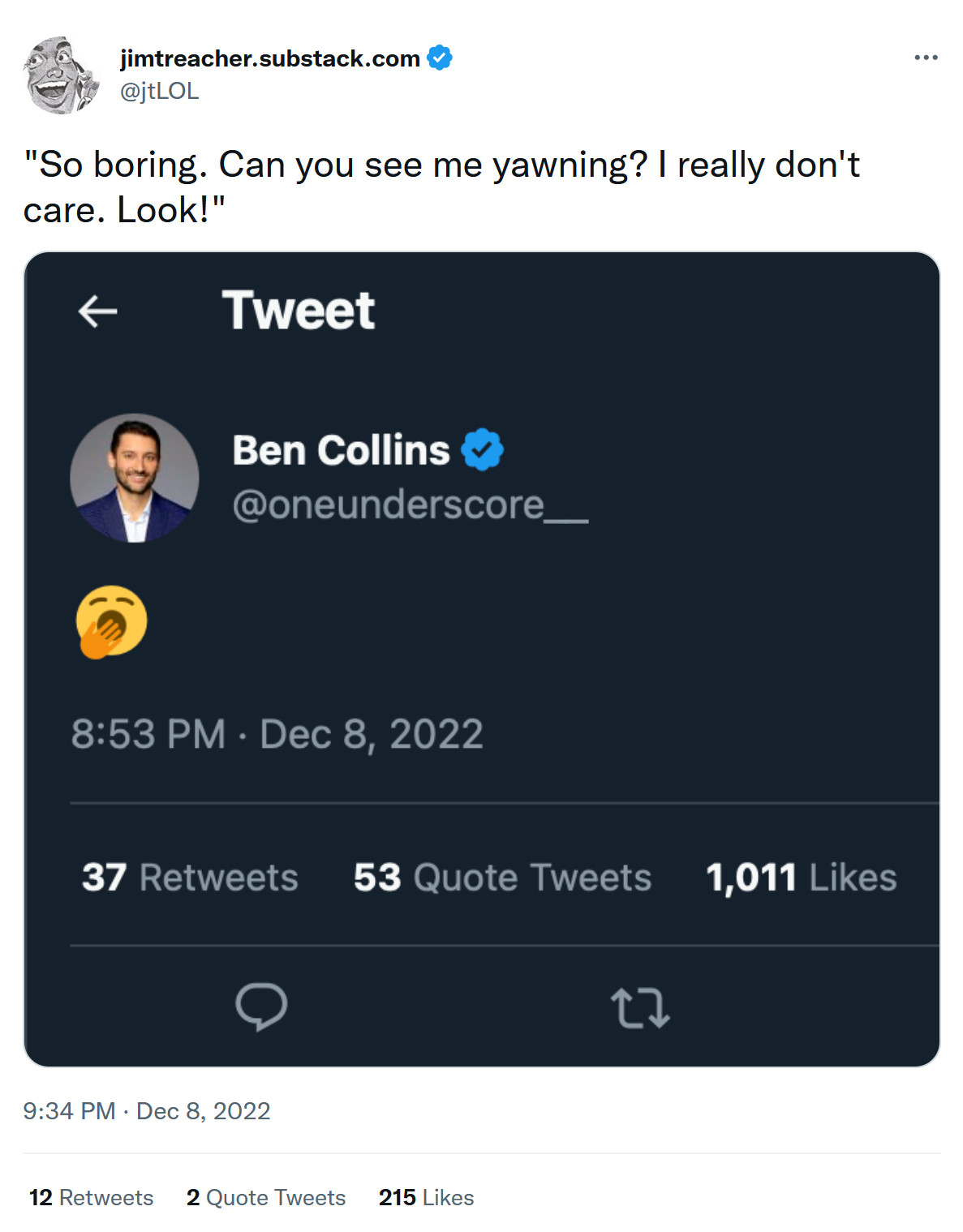THE TWITTER FILES: Bari Weiss Twitter Files Reveal Systematic ‘Blacklisting’ of Disfavored Content.
The previous installment, released by independent journalist Matt Taibbi, focused on the confused and chaotic decision on the part of Twitter executives to offer a “hacked materials” rationale for suppressing the New York Post‘s Hunter Biden laptop story; as such, the files mostly provided more evidence of what was already fairly well-known.
The Weiss installment, on the other hand, offers significant evidence of something that many people merely suspected was taking place: wholesale blacklisting of Twitter accounts that were perceived to be causing harm.
Weiss provides several examples of ways in which the platform limited the reach of various high-profile users: Jay Bhattacharya, a Stanford University professor of medicine who opposed various COVID-19 mandates and lockdowns, was on a “trends blacklist,” which meant that his tweets would not appear in the trending topics section; right-wing radio host Dan Bongino landed on a “search blacklist,” which meant that he did not show up in searches; and conservative activist and media personality Charlie Kirk was slapped with a “do not amplify” label. At no point did anyone at Twitter communicate to these individuals that their content was being limited in such a manner.
These actions, of course, sound a lot like “shadow banning,” which is the theory that Twitter surreptitiously restricts users’ content, even in cases where the platform has not formally issued a ban or suspension. For years, various figures on the right and contrarian left have complained that the reach of their tweets had substantially and artificially diminished for nonobvious reasons, contrary to the stated claims of top-level Twitter staffers who steadfastly asserted: “We do not shadow ban.”
This claim depends upon how the term is defined. To be clear, Twitter has publicly admitted that it suppresses tweets that “detract from the conversation,” though the platform’s plan was to eventually move toward a policy of informing users about suppression efforts—a move that never took place.
Related: The Twitter Files are damning to the government.
Second, we are learning that Twitter worked closely with like-minded government bureaucrats to squelch legitimate news, information, and discussion. They did so to protect favored candidates (Democrats) and political positions (progressive). We will undoubtedly learn that Facebook, Google and other media giants had similar ties to Washington. We certainly need to know.
The government’s role here is damning. Its primary job under the First Amendment is to protect free speech, not to kill it. It botched that vital job, and it did so deliberately to increase its own control over private speech in public fora and, apparently, to promote certain political views.
The only good news here is that Twitter’s new owner, Elon Musk, is exposing the old management’s efforts to suppress speech and promote political bias on its platform. To expose those malign efforts, he ordered some of Twitter’s internal documents be given to two journalists: Matt Taibbi (who quickly published some of his findings as tweets) and Bari Weiss (who is beginning to publish some findings and promises to publish a longer analysis).
We have now learned that some of Twitter’s holdover executives worked secretly to prevent the transfer of those documents to Taibbi and Weiss. The key figure here seems to be Twitter’s second-ranking attorney, James Baker, who came to the company from his post as the FBI’s top lawyer. When Musk discovered Baker was undermining him, Musk fired him immediately. We don’t know if Baker was trying to shield bad behavior by Twitter’s old management, or by the FBI and CIA, or by all of them. In any case, Baker seems to be one of those swamp creatures who routinely slide through revolving doors, forging profitable links between their private employers and government agencies.
As bad as Twitter’s old management was, the reaction of left-leaning journalists to Elon Musk’s efforts has been frankly astonishing. Instead of seeking full disclosure, as reporters normally would (and should), they have attacked Musk for trying to ensure it. Instead of demanding free speech, as honorable journalists would (and should), they have demanded even more censorship to stop legally permissible content from appearing on the social media platform. They believe in “free speech for me, but not for thee.”
Just think of the media as Democratic party operatives with bylines (who recently lost many of their inside sources within Twitter after Musk’s purchase), and it all makes sense. Such as the Stig Bensmithing breaking news: NBC News’ Ben Collins offers an emoji to express his disinterest in Twitter Files Part 2.

